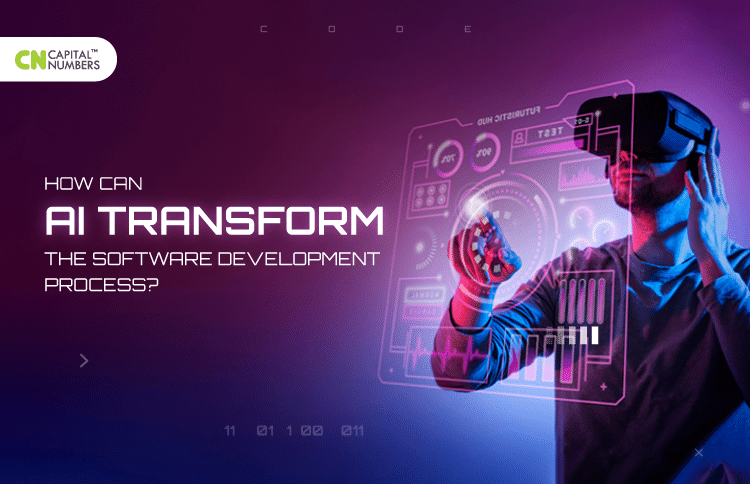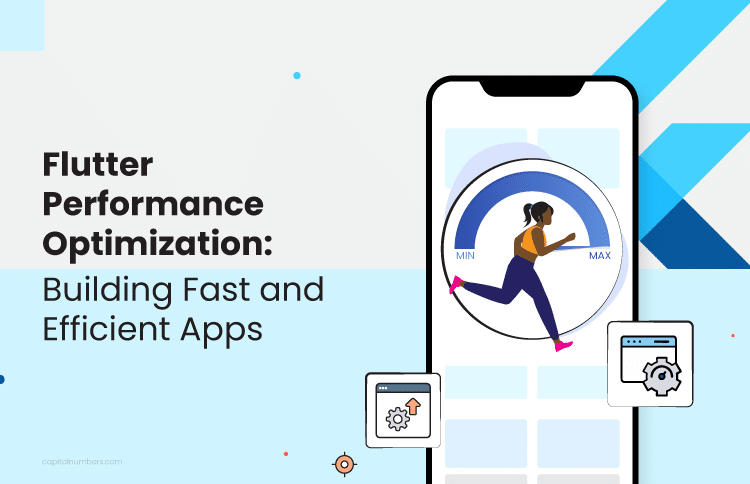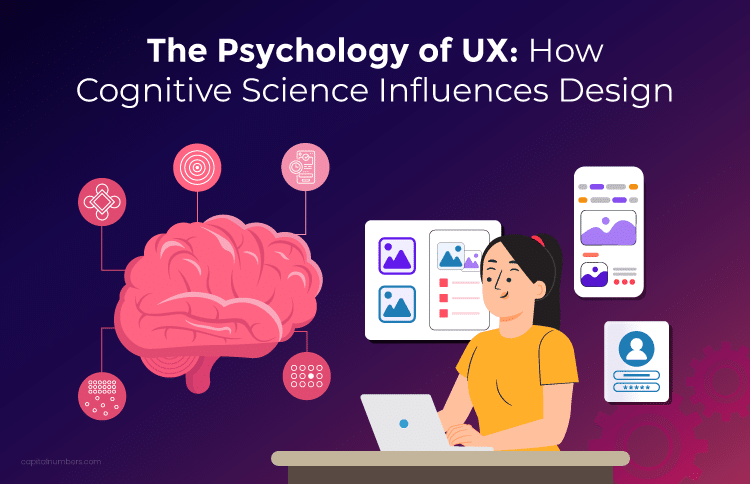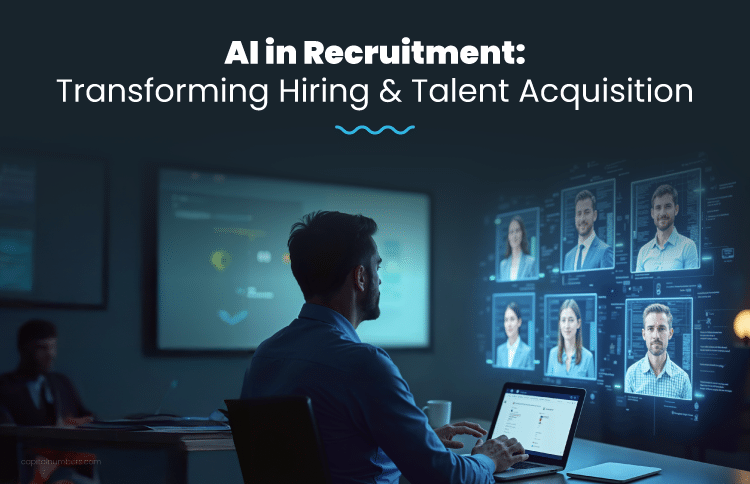How Can AI Transform the Software Development Process?
Table of Contents
Artificial Intelligence (AI) is not new and is used in various areas. It has an immense impact, changing how we work and the people who work with us. Now, with Open AI’s ChatGPT and Google’s Bard, the battle of AIs begins, and things are getting even more interesting. Working with these AIs is easier, quicker, and more accurate.
And when it comes to software development, AI is revolutionizing various aspects of the development lifecycle to build high-quality products and help developers. But how? Is AI a boon or bane for software developers? Read on to get the answers.
How is AI helping software developers?
AI is helping software developers in more than one way. Let’s find them out –
1. Automated code generation
One of the vital impacts of AI on software development is its ability to generate code automatically. Developers can quickly create complex software systems using AI tools like AutoML and AutoCode. These tools use machine learning algorithms to analyze data and generate code in a fraction of the time.
Also, these tools significantly reduce the development time and cost. By eliminating the need for writing code manually, these tools allow developers to focus on higher-level tasks.
2. Better code quality
Another way artificial intelligence is helping software developers is by improving code quality. Using AI testing tools, including automated testing and code analysis, developers can easily identify potential bugs and errors in the code.
Automated testing involves using AI algorithms to help developers test software for bugs. To do so, developers generate test cases automatically and run them against the software to identify the issue. Code analysis tools use AI algorithms to analyze the code and identify potential issues.
Automated testing and code analysis tools can improve the code quality. By identifying potential issues early in the development phases, software developers can address them before they become major concerns.
3. Better planning and budget estimation
When a project is not delivered on time and within the given budget, it causes immense customer dissatisfaction. And it might prevent them from continuing the existing project or returning for the next one. Also, it hurts developers’ morale.
But with modern artificial intelligence software, project managers and developers can now bid farewell to these concerns. They can easily make informed decisions about project timelines and budgets with AI tools.
Developers can train AI/ML models on historical data related to projects to increase their capabilities in predicting estimation. By analyzing data related to project timelines, team sizes, and task complexity, these models can generate accurate estimates for new projects.
4. Predictive analysis
AI is also helping software developers through predictive analytics. It involves using machine learning algorithms to analyze data and predict future events.
Considering predictive analytics, developers can predict user behavior and software performance. For example, using predictive analytics, you can pinpoint the potential blockages in the software and optimize it to improve performance.
5. Natural Language Processing
AI also impacts software development using Natural Language Processing (NLP) technologies. NLP involves the use of ML algorithms to understand and interpret human language. It can be used to develop software systems that understand and respond to natural language input.
If you want to build chatbots or virtual assistance, NLP benefits you. This software can be trained to understand natural language input from users and respond accordingly. Also, it can provide customer support, answer questions, and perform other tasks effectively.
Using NLP in software development helps improve the user experience. Allowing users to interact with software systems using natural language input, NLP can make software more accessible and easier to use.
6. Manages bugs and errors
Errors in software are common. When writing code, developers often make mistakes. However, investigating that mistake later to resolve an issue is time-consuming and challenging. And often, it can lead to errors.
Taking the help of artificial intelligence to search for errors can save both your time and energy. After detecting an error, AI fixes the bug immediately. Besides, such a process enables developers to continue their work without worrying about errors.
Also, there are AI tools for predicting future errors by looking through databases. These tools make developers aware of how to avoid them in future projects.
7. Personalized learning and skill enhancements
If you’re practicing coding, AI can tell you what you’re doing right and where you can improve, just like having a good friend by your side. With interactive chatbots for instant clarification and continuous progress tracking, AI ensures a dynamic learning experience. With AI’s help, developers can upgrade their skills and stay up-to-date in the ever-evolving software development landscape.
Additionally, AI-driven content recommendations, interactive chatbots for instant clarification, and continuous progress tracking all contribute to a dynamic learning experience. This amalgamation of AI technologies ensures that developers can acquire new skills efficiently and stay up-to-date in the ever-evolving landscape of software development.
Will AI replace software developers?
While artificial intelligence (AI) can automate certain tasks to improve efficiency, it’s unlikely that AI will replace software developers in the foreseeable future. It is because humans have different abilities than AI, and that is more than an asset. What’s that? Let’s explore this in detail –
• Complex problem-solving
Software development involves resolving complex problems, designing algorithms, and developing custom software solutions. While AI can assist in automating repetitive manual tasks and optimizing processes, it can’t fulfill other parameters. It requires human intervention to conceptualize, architect, and design complex software solutions that meet specific requirements.
• Creativity and innovation
While AI can assist with routine and predictable tasks, creativity and innovation are areas where humans excel. Developing novel solutions, designing engaging UI/UX, and conceptualizing new and exciting features often require out-of-the-box thinking that AI can’t fully replicate.
• Context and intuition
Developers often work closely with stakeholders to understand their needs and translate them into software solutions. It requires a deep understanding of the business context, industry trends, and human interactions. Developers use their intuition and empathy to create software that aligns with user expectations.
• Rapid technological changes
Software development evolves rapidly, with new programming languages, frameworks, and tools emerging frequently. Developers must continuously learn and adapt to stay up-to-date. While AI can aid learning and recommendation, developers possess the critical thinking to understand which technologies best suit a project.
• Ethical and moral considerations
Software development involves ethical decisions, including privacy concerns, security considerations, and the potential societal impact of technology. These complex matters require human judgment and a deep understanding of human values.
• Collaboration and communication
Software development is often a collaborative effort involving team members, stakeholders, and users. Effective communication, teamwork, and problem-solving skills are essential for successful collaboration, areas where human interaction excels.
What is the future of AI in software development?
The future of AI in software development is exciting and full of possibilities. Here are some predictions and possibilities for the future of AI in software development:
- Increased automation: As AI technology evolves, we can expect more automation in software development. It will lead to higher-quality software, faster development times, and reduced costs.
- Integration with other emerging technologies: AI will be integrated with other emerging technologies, such as the Internet of Things (IoT), to create intelligent software solutions to interact with physical objects and environments.
- Better personalization: AI will enable software to be more customizable as per users’ needs and preferences. It will result in a better user experience and ensure customer satisfaction.
- Ethical considerations: As AI plays a larger role in software development, ethical considerations surrounding its use will become increasingly crucial. Developers should consider issues such as bias and privacy when developing AI-powered software solutions.
Bottom line
The symbiotic relationship between developers and artificial intelligence is transforming the sphere of software development. As AI advances, it offers developers various tools to improve efficiency, enhance code quality, and drive innovation. By choosing AI-powered tools, developers can unlock their full potential, making the software development process more streamlined, innovative, and impactful.
But that does not mean it will replace the human element. Developers’ critical thinking, problem-solving abilities, and imaginative insights remain irreplaceable. A proper blend of human ingenuity and AI’s computational power promises an era of software innovation that pushes the boundaries of what’s possible.
And if you are looking for a reputable software development company to hire expert developers, choose Capital Numbers. We offer customized solutions quickly and at affordable prices. Want to discuss your project? Call us today!














